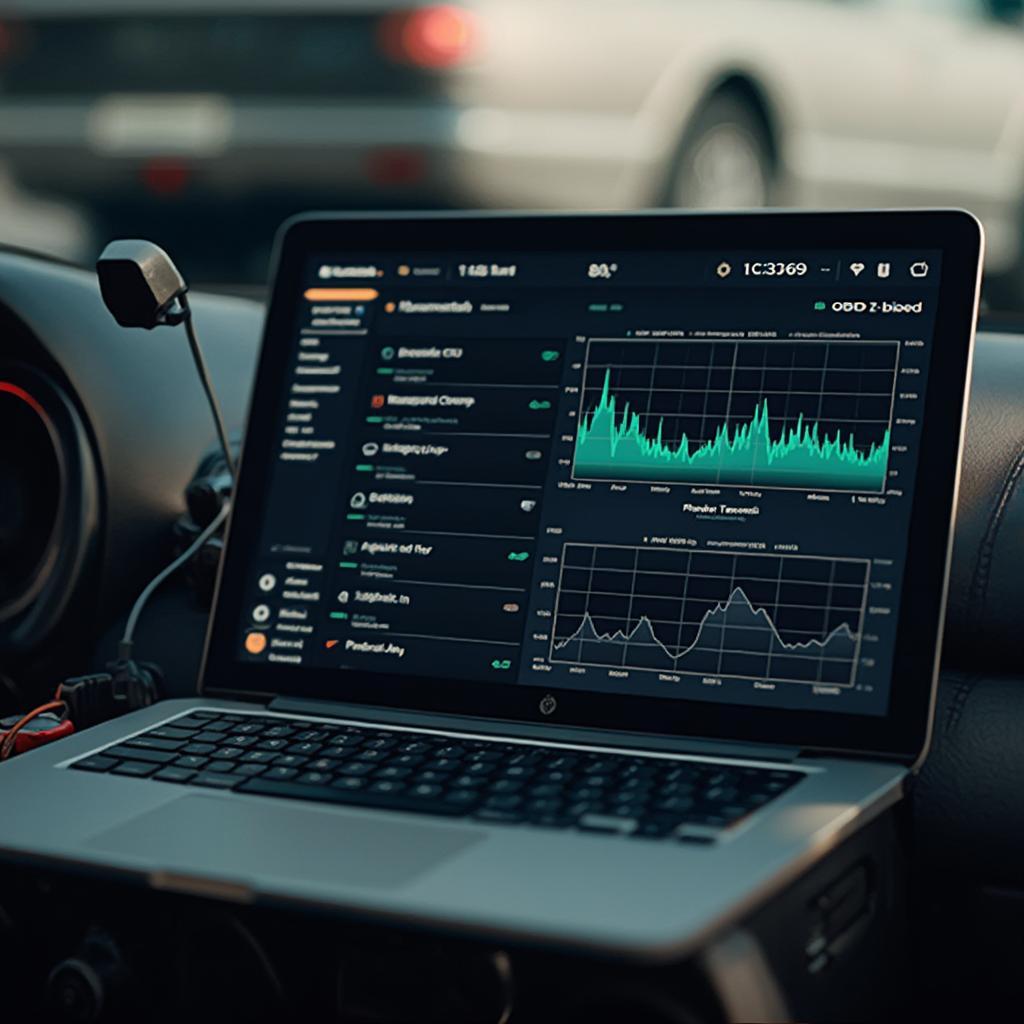Can you tune your car with OBD2? It’s a question many car enthusiasts ask, hoping for a simple and affordable way to boost performance. While OBD2 ports offer some tuning capabilities, the reality is more nuanced than a simple yes or no. Let’s delve into the details of OBD2 tuning, exploring its potential and limitations.
What is OBD2 Tuning and How Does It Work?
OBD2 tuning refers to modifying a vehicle’s engine control unit (ECU) parameters through the OBD2 port. This port, standard in most cars since 1996, allows access to the ECU’s data stream, enabling adjustments to fuel maps, ignition timing, and other performance-related settings. Some devices claim to optimize these parameters for increased horsepower, torque, and fuel efficiency.
Types of OBD2 Tuning Devices
Several types of OBD2 tuning devices are available on the market, each with varying levels of functionality and complexity. These range from simple plug-and-play devices to more sophisticated systems requiring professional installation. It’s crucial to understand the differences between them.
-
Performance Chips/Tuners: These devices often plug directly into the OBD2 port and claim to alter the ECU’s settings to improve performance. Some are marketed as “performance chips” even if they lack any actual processing power. Check out our nitro obd2 diesel chip tuning review for more information on a specific product example.
-
Flash Tuners: These devices rewrite the ECU’s firmware with modified software, offering more significant performance gains than simple OBD2 tuners. However, they require more technical expertise and carry higher risks if used incorrectly.
-
OBD2 Software and Dongles: Some software applications, combined with an OBD2 dongle, allow access to and modification of certain ECU parameters. This approach offers more flexibility and control but requires a deeper understanding of engine management systems. You might want to explore our obd2 software for dodge page for specific software options.
The Truth About OBD2 Tuning: Benefits and Limitations
While OBD2 tuning offers a convenient way to potentially improve vehicle performance, it’s essential to approach it with realistic expectations.
Benefits of OBD2 Tuning
-
Potential Performance Gains: In some cases, OBD2 tuning can lead to modest improvements in horsepower and torque, particularly in naturally aspirated engines.
-
Improved Fuel Efficiency: Some tuning devices claim to optimize fuel maps for better fuel economy, although results can vary significantly depending on driving habits and vehicle type.
-
Customized Driving Experience: OBD2 tuning can allow for adjustments to throttle response and other parameters, tailoring the driving experience to individual preferences.
Limitations of OBD2 Tuning
-
Limited Scope: OBD2 tuning primarily affects engine parameters and cannot modify other aspects of vehicle performance, such as suspension or transmission.
-
Potential Risks: Incorrectly tuning a vehicle via OBD2 can negatively impact engine performance, fuel economy, and even cause damage to the ECU.
-
Generic Tuning Maps: Many OBD2 tuning devices use generic tuning maps that may not be optimized for a specific vehicle make and model, leading to suboptimal results.
Can OBD2 Tuning Replace Professional Tuning?
OBD2 tuning, while offering some benefits, cannot replace professional dyno tuning. Professional tuners use specialized equipment and software to analyze a vehicle’s performance and create custom tuning maps tailored to the specific engine and modifications.
“OBD2 tuning can be a good starting point for those looking for minor performance enhancements,” says automotive engineer, Dr. Emily Carter. “However, for significant gains and optimal engine performance, professional tuning remains the best option.”
Looking for the right OBD2 scanner for your needs? Check out our guide on the best obd2 scanner tunner.
Choosing the Right OBD2 Scanner for Tuning
If you’re considering OBD2 tuning, selecting the right scanner is essential. Factors to consider include compatibility with your vehicle, data logging capabilities, and support for tuning software.
You can learn more about specific scanners by reading our creader 4001 obd2 scanner review. Understanding ls1 obd2 port wire colors can also be helpful for advanced diagnostics and modifications.
Conclusion: Can You Tune Your Car with OBD2?
While you can make some adjustments to your car’s performance using the OBD2 port, it’s essential to understand the limitations. OBD2 tuning can offer minor improvements, but for significant gains, professional tuning remains the preferred method. Choose your tuning method wisely and always prioritize the health and longevity of your engine.
FAQs
- Is OBD2 tuning safe for my car? While generally safe, improper tuning can cause issues. Research and choose reputable devices.
- How much horsepower can I gain with OBD2 tuning? Gains are often modest, typically ranging from a few horsepower to potentially 10-15% in some cases.
- Can I tune my diesel car with OBD2? Yes, specific OBD2 tuning solutions are designed for diesel engines.
- Do I need professional installation for OBD2 tuning? Many devices are plug-and-play, but professional installation is recommended for complex systems.
- Will OBD2 tuning void my car’s warranty? Modifications can potentially void your warranty. Check your vehicle’s warranty terms.
- Can I undo OBD2 tuning? Yes, you can typically revert to the original ECU settings.
- What’s the difference between OBD2 tuning and chip tuning? Chip tuning often involves replacing the ECU chip, while OBD2 tuning modifies parameters through the port.
Need Support?
Contact us via WhatsApp: +1(641)206-8880, Email: [email protected] or visit us at 789 Elm Street, San Francisco, CA 94102, USA. Our customer service team is available 24/7.
